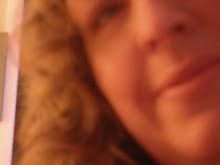"There is a certain fear of death that comes from not having lived yet. I had to face death myself when I had cancer a few years ago. I don't think I was afraid of death at that time, but I also knew I had already lived. Once you know you have touched upon this mystery of life, you are not afraid of death. But there's an existential terror about losing what you've never found. Something in me says, 'I haven't done "it" yet.' I haven't experienced the stream of life yet. I haven't touched the real, the good, the true, and the beautiful - which is, of course, what we were created for.
"When we know we have experienced the stream of life, we will be able to lie on our deathbed like Francis and say, 'Welcome, sister death.' I'm not afraid to let go of life, because I have life. I am life. I know life is somehow eternal, and another form is waiting for me. It is the last threshold, but I've been over this threshold before. I think this is what Paul means when he speaks of 'reproducing the pattern of his death and knowing the power of his resurrection' (Phil. 3:10). It is an actual pattern that we must live through at least once - and then we understand something forever."
"We have to pull back and learn the great art of detachment, which is not aloof, but the purifying of attachment. Our religion is not pure detachment or pure attachment; it's a dance between the two. Another set of images for this reality is the desert and the city. Jesus moves back and forth between desert and city. In the city, he feels himself losing perspective, love, and center and has to go out to the desert to see the real again. And when he is alone in the desert, his passionate union with the Father drives him back to the pain of the city.
"We go back to be purged by God's mercy and regrafted to the vine; we go back to the well until we know what the real is, and then we return to the city. The work of the soul is attachment; the work of spirit is often detachment. Without the art of detachment, the culture becomes addictive, and we have massive codependency. We have people enmeshed in one another who do not know their own identities. They have nothing to give because there is no "I" there. Without attachment, however, there is no risk, no passion, no compassion, no social justice, no holding the tension and collision of opposites ...
"The contemplative stance is the Third Way. We stand in the middle, neither taking the world on from the power position nor denying it for fear of the pain it will bring. We hold the realization, seeing the dark side of reality and the pain of the world, but we hold it until it transforms us, knowing that we are complicit in the evil and also complicit in the holiness. Once we can stand in that third spacious way, neither fighting nor fleeing, we are in the place of grace out of which newness comes. Creativity comes from here, and we can finally do a new thing for the world. When our ego stops getting hooked, when it's not our agenda, then we can hope ours is the agenda of God. We can stop building our kingdom and become usable in the kingdom of God."
Richard Rohr, Everything Belongs




No comments
Post a Comment